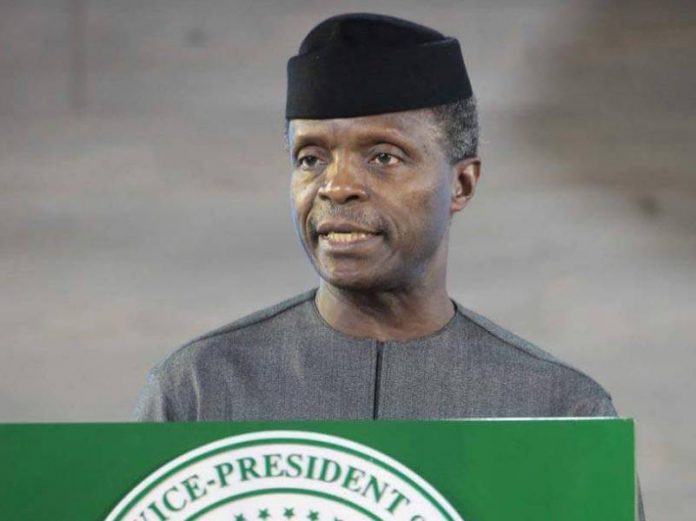The Vice President, Prof. Yemi Osinbajo, said on Monday that it was the obligation of government to ensure that the future of our people was secure and prosperous.
He said this while opening the legislative economic summit titled “Legislative Framework For Economic Recovery and Sustainable Development’’, organized by the House of Representatives in Abuja.
In his speech titled “The Nigerian Recession: We must never walk this way again”, the vice president stated that the country got into recession because of the inability of previous administrators to save for the future.
“By 2050, we would have the fourth largest population in the entire world; over 60 per cent of that population would be young men and women who would need education, jobs and a future for their families.
“There is no society yet on earth that has had that size of population and did not have the technology, the educational facilities and other infrastructure to sustain it.
“The cost of being the first such nation will be too grave to bear.
“The obligation that history and providence has thrust upon us today is to honestly do all we can to ensure that the future of our people is secure and prosperous.
“We must not walk this path of recession again.’’
According to him, the way to get out of recession is by taking concrete decisions to stem the tide of poor growth.
Osinbajo also noted that no developing economy could stand prolonged legislative and executive feud during key economic decisions and urged quick passage of the appropriation bills.
Osinbajo expressed gladness that the country had exited recession, noting that it would not pass that path again.
He said the administration was investing heavily on power and other infrastructure, especially transportation, and achieving more with less income.
He blamed unbridled corruption for the country’s economic decline, adding that to shore up revenue diversification and aggressive taxation were very crucial.
“We must never forget that corruption is perhaps the most outrageous cause of our economic decline.
“Aside from bare-faced stealing and waste of resources, inflation of contracts and other procurement ensure that the cost of infrastructure necessary for development would always be unaffordable.
“So if what we should spend building a 200 km road ends up being spent on 20 km road, there is no way we are going to make much progress.
“And there is no way we won’t end up in some kind of economic decline or the other,’’ he added.
He said Lagos economic growth was through aggressive tax reform system that the government now generated more internal revenue annually than 31 states put together.
He said it began its revolution when former President Olusegun Obasanjo seized the local government funds of the state, thus making the state to lose about 40 per cent of income from the federation account.
According to him, Lagos can survive without recourse to the federal allocation, adding that Rivers and Ogun were in the same threshold generating N85 billion and N72 billion from IGR.
Osinbajo recalled that the country ran into recession because it was running an unstable economic structure where oil contributed more than 70 per cent of the budget income and 90 per cent of export earnings.
He said that another reason for the economic structure was that it was mainly consumption-driven with a high propensity to import, including the food the country could grow.
He stated that the country could have survived recession if it had saved, noting that rather than savings, the country accumulated debts.
He noted that the various diversification initiatives were yielding results in various parts of the country and called for the private sector to embrace the Road Trust Fund of the administration.

